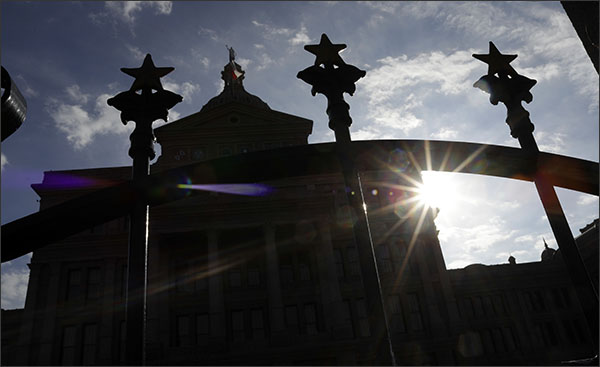By: Arianna Prothero – blogs.edweek.org – July 14, 2017
Private school choice supporters continue to hit a wall of opposition made up by not only by Democrats, but also members of their own party. In particular, Republicans from rural areas.
Residents of the Lone Star State take serious pride in their sense of independence, so it may come as a surprise that Texas hasn’t embraced school choice as much as many other states.
Although Texas has had charter schools since the mid-90s, it doesn’t have a single private school choice program. No Vouchers for low-income kids. No tax-credit scholarships for students in failing district schools. No education savings accounts for students with disabilities. But it’s not for lack of trying.
Click for more coverage of parent engagement in schools.
Republican lawmakers in Texas have attempted for years to bring private school choice to the state, and this past session was no different. Even though two separate proposals failed to get through the legislature this spring, Gov. Greg Abbott, a Republican, plans to make another drive at it during a special session that starts Tuesday.
He’s championing an education savings account program for students with disabilities, which would allow families to take the state funding allocated for their children and use it on approved education expenses of their choosing, including private school tuition. (For more details on how education savings accounts work, and how they’re different from their better-known cousins, school vouchers, check out this explainer.)
Why Doesn’t Texas Have School Vouchers?
Private school choice supporters continue to hit a wall of opposition made up by not only by Democrats, but members of their own party. In particular, Republicans from rural areas where there simply aren’t enough schools for school choice to really work. (This isn’t just an issue for rural families. For a visual example of these “choice deserts,” check out this map the the Dallas Morning News created plotting all of all the private schools in Dallas and the surrounding areas.)
“There is certainly a culture in rural areas in Texas where there aren’t a lot of private schools and there’s Friday night lights and football,” said Matthew Ladner, a senior research fellow at the Charles Koch Institute. A native Texan, he also helped create the nation’s first education savings account program in Arizona.
“[Texas] House leadership has been skeptical of parental choice,” Ladner said.
If this storyline sounds familiar, it’s because that’s the same coalition of Democrats and rural Republicans that nearly toppled Betsy DeVos’ nomination to her post at the helm of the U.S. Department of Education. DeVos has long been an influential backer of voucher programs. After senators from two rural states—Alaska and Maine—voted against DeVos, Vice President Mike Pence had to be brought in to cast the tie breaking vote to push DeVos over the 51-vote threshold to become education secretary.
What Are the Chances Texas Will Pass a Private School Choice Bill?
Even though the Texas House rejected a bill that included an education savings account program for students with special needs in the regular session, Ladner thinks rural Republicans will eventually come around to supporting the idea. As long as the program is targeted at a small group of students, it’s harder to make the argument that it will sap a lot of money out of district schools, said Ladner.
And private school choice isn’t the only controversial education-related item on the special session agenda. Conservative lawmakers are also planning to bring back a “bathroom bill” that would place restrictions on school restroom access for transgender students. An attempt to do so in the regular legislative session failed.
To see this article, click read more.
![]()
Source: School Vouchers Don’t Exist in Texas. Republican Opposition Is the Reason.
 Listen Online
Listen Online Watch Online
Watch Online Find a Station in Your Area
Find a Station in Your Area








 Listen Now
Listen Now Watch Online
Watch Online
